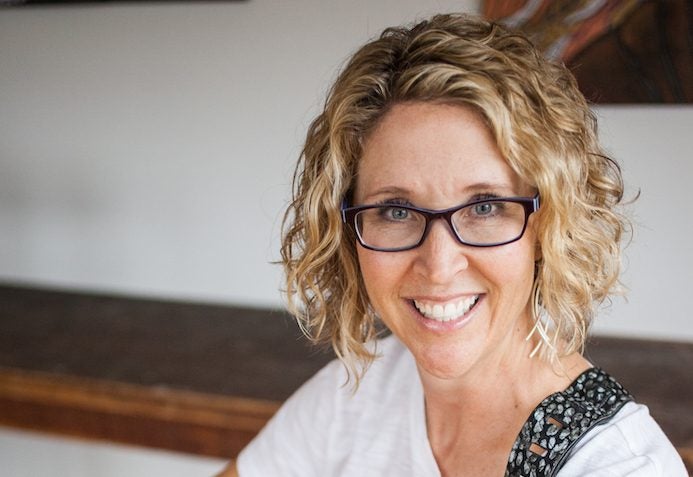Seeking Connection: New vision brings new perspective
Published 9:00 am Saturday, April 7, 2018

- Erin Smith is the owner of the OM place in Winchester, the author of “Sensible Wellness” and the online host of the OM channel. Follow her on Twitter @erinsmithauthor.
“It’s not what you look at that matters. It’s what you see.”
— Henry David Thoreau
I recently got new glasses with progressive lenses, or invisible bifocals for you lucky readers who have perfect vision.
This means I have one prescription when looking horizontally, and a magnified, different prescription in the bottom of the lens, so I can now check the time on my watch or read something on my phone without needing to slide my glasses to the top of my head.
The optician who fitted them said I’d need some time to get used to the different perspective and to “walk carefully” for a few days. Indeed.
As I taught my first yoga class, I noticed how sharply focused my feet looked as I was bent at the waist, fingertips brushing the earth. Then I rolled up to standing, the floor suddenly miles away, my vision a funhouse mirror with everything wonky and off-scale.
My stomach roiled and I wobbled a bit until I found my balance. This odd sense of vertigo lasted for days until I became accustomed to my new glasses.
What’s interesting to remember is it was my brain that had to recalibrate, not my eyes. The eyes change light into electrical impulses, but it’s the brain that interprets those signals. So it was really a perspective change of mind. The world hadn’t changed, only the way I perceived it.
Buddhism teaches that everything changes and that all human suffering arises from our inability to navigate change gracefully. We create unhealthy attachments to the way things are now. We expect the worst, dread the future and play the victim, asking “Why, me?” over and over.
Buddhism also believes it’s within our power to transcend these unhealthy patterns, to live a life of joy and peace that is unaffected by change.
In other words, pain is inevitable, but suffering is optional.
The way to accept and even welcome change comes from altering not our circumstances, but the way we perceive them. Perception creates our reality, determining how happy or peaceful we are. The ability to step back and adjust the way we see the world is a crucial life skill, but a hard one to develop.
Our brains default to pattern recognition, scanning our memory banks in every situation to see what previous experience and information we already have, which is awesome for basic motor skills. Otherwise, we would have to relearn how to walk, drive or speak each day. But it’s not great for developing our higher self.
The problem arises when our brains default to a previous conclusion instead of seeing a situation with a fresh perspective. This bypass keeps us thinking and acting in the same ways repeatedly. It’s déjà vu, all over again.
What we need to cultivate is vu deja, which is seeing something we already know as if for the very first time. Vu deja is seeing the world with new eyes; this mentality is the ability to keep shifting our opinions and evaluations, shifting from negative thinking to positive thinking.
It requires attention and commitment, but makes navigating life change far easier. It sometimes leaves us with vertigo, but it helps us grow. Like adjusting to my new glasses, seeing our life’s experiences with fresh eyes can be unsettling. Widening our lens takes time to become a habit, but it’s worth the effort. When we change our perspective, we change our lives.
I am an Olympic-level optimist, but that’s because I work at it. Just like all of those athletes on the podium, I’ve spent countless hours dissecting my life to find the lesson, the blessing.
I look at things as if for the first, or the last, time. In this way, I’ve designed a life full of abundance. I try to see every person and occurrence as a spiritual assignment, an opportunity to grow into a more decent human being. This attitude can make an ordeal an adventure, the dreadful a cosmic gift.
Is the world a tough place out to get you or is it full of beautiful people doing beautiful things? It’s both. Life is horrible and happy. Humans are cooperative and selfish, virtuous and venal. The world contains the unbearable and the unbelievable; life is full of disaster and delivery from pain. It’s up to you in how you want to see it.
My daughter said it perfectly. She plucked a dandelion from the yard and blew the seeds over the hill. “Daddy says it’s a weed,” she said. “I say it’s a wish.”
Erin Smith is the owner of the OM place in Winchester.



